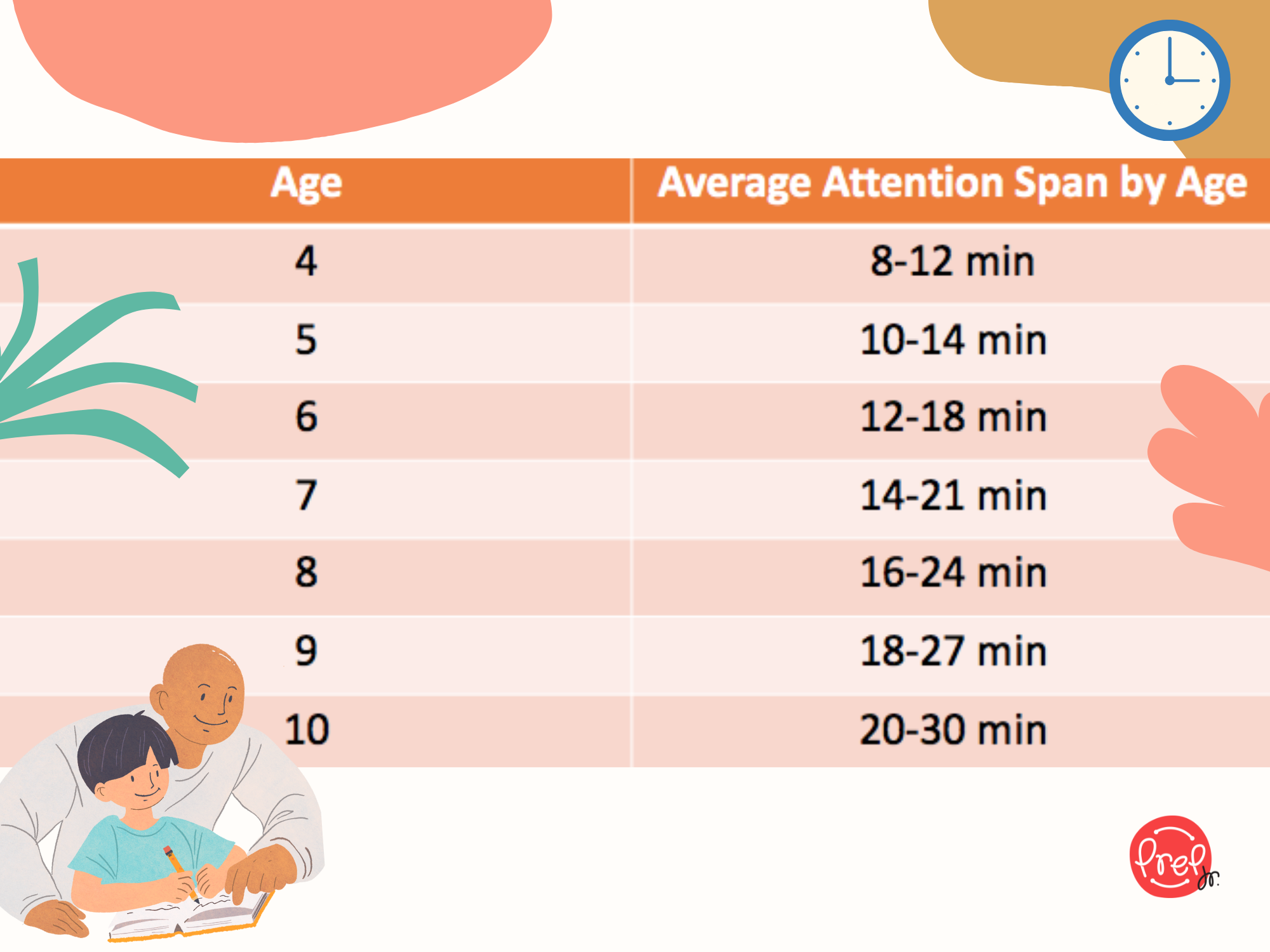Blog
Back to school series: How to keep your child focused for a longer period of time
By Tammy Kong on 07/01/2022

An attention span refers to the time a person can focus on a particular activity before losing focus or losing interest.
It is important that you understand your child’s attention span because it has such a great impact on their education and day-to-day activities, and eventually, their adult life.
Tip #1: Making time for regular, short breaks
Being mindful of the attention span chart can be very useful in setting appropriate expectations towards your child. Have your kid take a break before frustration or the lack of focus sets in.
A simple breathing or stretching exercise could help to reset their minds and draw their attention back to the task at hand. Simply going for a water break or staring out of the window could be sufficient for a quick mental break.
Interval breaks: Young kids often benefit from taking breaks at timed intervals. For instance, work for 10 minutes before taking a 5 minutes break.
Ratio breaks: Older kids tend to benefit from taking breaks that are tied to a completed task. For instance, once kids complete their English homework, they are given a break before moving on to their Chinese homework.
Brain breaks during homework have shown to have real benefits. They help reduce stress, anxiety and frustration, in addition to helping students to stay more focused.
Tip #2: Breaking down the task on hand
The attention span chart is a good guide to split the duration of the activity planned. Breaking up a lengthy task or study session into manageable portions will be easier for the child to stay focused.
When children fail to stick to a task or an activity, it can be very discouraging. Consider the number of spelling words required to learn before splitting them up into easy-to-accomplish tasks.
Children love the feeling of accomplishment and success. Those are positive emotions that increase their self-esteem.
Tip #3: Reinforce positive behavior
Being able to return to a task and get it done builds perseverance and self-confidence. Praising or rewarding your child for finishing the task at hand motivates children to work through their homework challenges as they get to press on and look forward to the end of the task.
Even simple actions like ticking the completed task off a checklist (or pasting stickers for the completed tasks for the younger ones) develops a sense of routine which could boost the satisfaction level and morale for the child.
Remember, every child’s attention span differs so understand your child before using the attention span chart as a reference.
Sources:
https://www.understood.org/articles/en/brain-breaks-what-you-need-to-know


